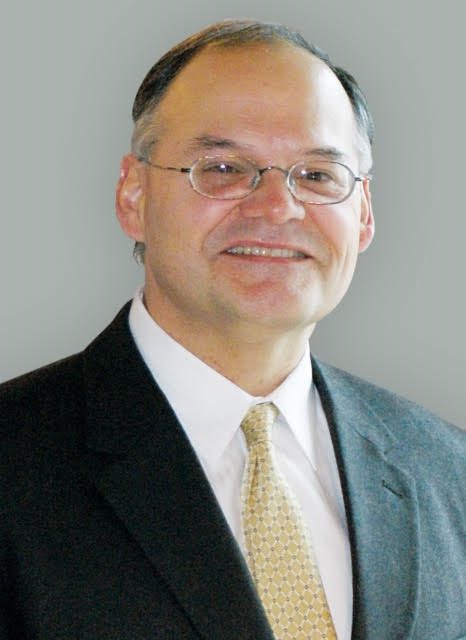
For 12 years, Raul Valdes-Perez, PhD, CEO of OnlyBoth, put his automated reasoning technology on hold.
Valdes-Perez had developed the technology at Carnegie Mellon in 2000, but decided to create a company, Vivisimo, based off another technology he developed at the famed science and technology university. Over the course of the 2000s, Valdes-Perez oversaw the growth of Vivisimo, as CEO for nine years and executive chairman for 12. In 2012, IBM bought Vivisimo and Valdes-Perez was free to build up a new company using the automated reasoning technology he had left behind.
The automated reasoning technology, which he called niche-finding, proved to be the backbone of OnlyBoth. Valdes-Perez and co-founder Andre Lessa officially started the company in 2014. OnlyBoth uses the data analysis technology to automate benchmarking for the healthcare sector. The technology automates comparison data and spits out insights “in perfect English paragraphs,” according to Valdes-Perez, about various metrics, related to what the healthcare organization is looking for.
“Through its regulatory and powers, the government collects and publishes very rich performance data in different healthcare sectors ranging from hospitals to nursing homes, dialysis facilities and others. Anybody can download this data. Our mission right now is to bring performance transparency to those healthcare sectors. The data is out there, but what is needed is a good engine, a good analysis tool that would communicate standout behaviors to the user.”
Valdes-Perez sat down with Chief Executive to discuss challenges he’s faced in going from academia to the business world, two things he learned from Jack Welch and more. Here are excerpts from this conversation.
What are the challenges you face in your day-to-day operations as CEO of OnlyBoth?
The one challenge I have faced is that I went into the business world knowing absolutely nothing about business. I had been basically an academic for most of my life and we started as three people in our company. We didn’t start with the board of directors, or much in the way of external funding. So the number one challenge was that if you have a small number of people in the company and they’re all kind of technical, then you have a limited range of expertise. So what do you do about that? I mean, if you’re a rich company, you can just hire people in various sectors as employees or even as consultants. But if not, then you face kind of two decisions. You either do the best you can and make a lot of mistakes or you proactively go out and seek advice from people who know more than you.
So that was the number one challenge and perhaps by temperament and perhaps also by belief, I went out proactively and sought advice from many, many different people on many different decisions I had to make. So that was the number one challenge I’ve faced throughout my business career. How do you make decisions when you are a small company that is growing organically and you don’t have the expertise to cover all the bases?
At a startup, you always need access to more knowledge than is available within your company in order to make good decisions. So one has to get into the mental habit of asking oneself, “If I have a decision to make, do I have the knowledge needed to make this decision by myself or do I lack such knowledge so I should go out and get advice from people outside my company who actually are quite familiar with the subject?”
So you have to get in the mental habit of automatically asking oneself that question. It doesn’t mean you have to seek advice 100 times a day of course, but for major decisions, it helps to think of that.

Chief Executive Group exists to improve the performance of U.S. CEOs, senior executives and public-company directors, helping you grow your companies, build your communities and strengthen society. Learn more at chiefexecutivegroup.com.
0

1:00 - 5:00 pm
Over 70% of Executives Surveyed Agree: Many Strategic Planning Efforts Lack Systematic Approach Tips for Enhancing Your Strategic Planning Process
Executives expressed frustration with their current strategic planning process. Issues include:
Steve Rutan and Denise Harrison have put together an afternoon workshop that will provide the tools you need to address these concerns. They have worked with hundreds of executives to develop a systematic approach that will enable your team to make better decisions during strategic planning. Steve and Denise will walk you through exercises for prioritizing your lists and steps that will reset and reinvigorate your process. This will be a hands-on workshop that will enable you to think about your business as you use the tools that are being presented. If you are ready for a Strategic Planning tune-up, select this workshop in your registration form. The additional fee of $695 will be added to your total.

2:00 - 5:00 pm
Female leaders face the same issues all leaders do, but they often face additional challenges too. In this peer session, we will facilitate a discussion of best practices and how to overcome common barriers to help women leaders be more effective within and outside their organizations.
Limited space available.

10:30 - 5:00 pm
General’s Retreat at Hermitage Golf Course
Sponsored by UBS
General’s Retreat, built in 1986 with architect Gary Roger Baird, has been voted the “Best Golf Course in Nashville” and is a “must play” when visiting the Nashville, Tennessee area. With the beautiful setting along the Cumberland River, golfers of all capabilities will thoroughly enjoy the golf, scenery and hospitality.
The golf outing fee includes transportation to and from the hotel, greens/cart fees, use of practice facilities, and boxed lunch. The bus will leave the hotel at 10:30 am for a noon shotgun start and return to the hotel after the cocktail reception following the completion of the round.